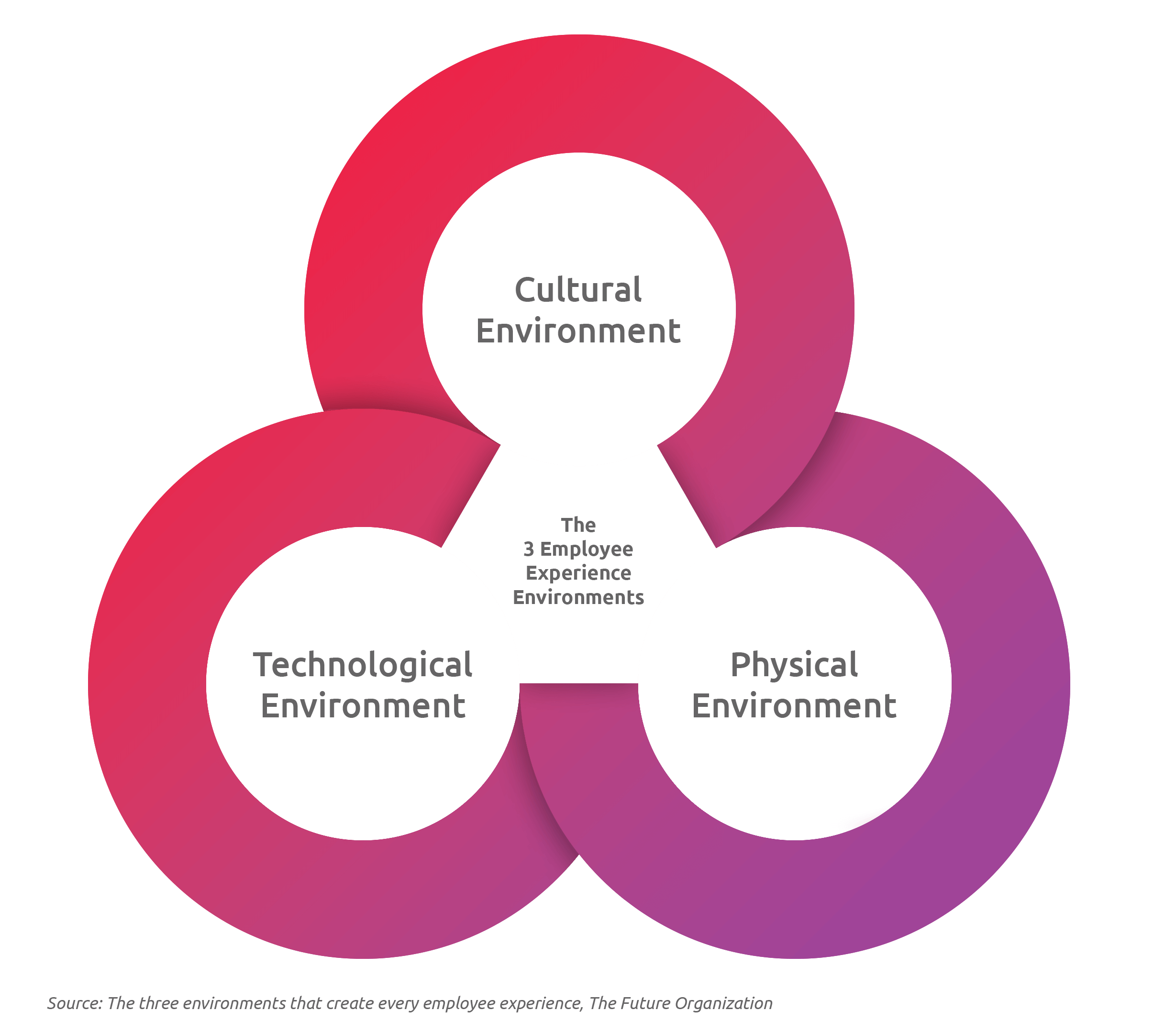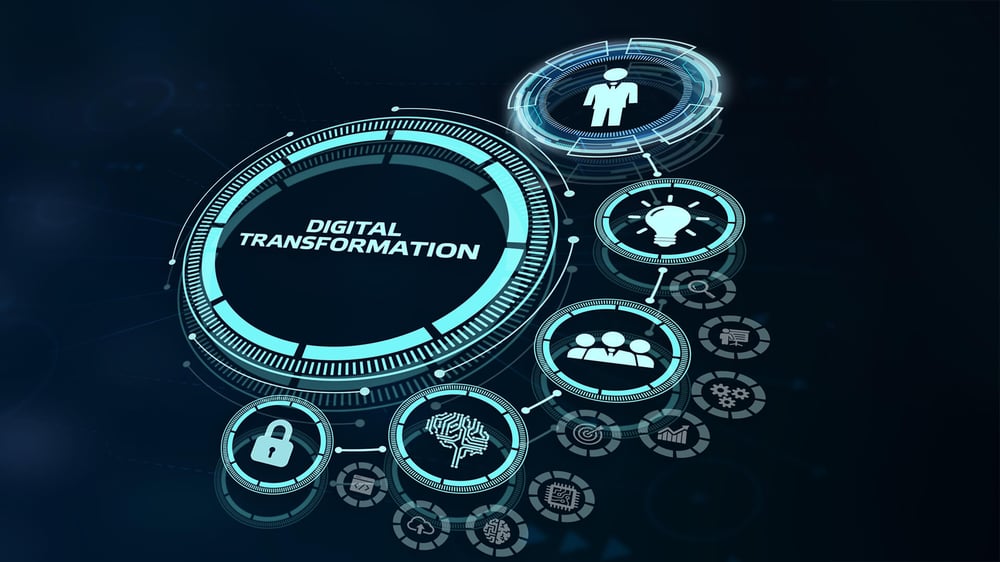Employee experience and creating a culture of innovation
In an era of rapid technological advancements and shifting workforce dynamics, the oil and gas industry is not only facing the challenge of attracting top-notch talent but also ensuring they stay engaged and committed.
As the sector grapples with a looming skills shortage (heard of the Great Crew Change?) and intensifying competition for skilled professionals, the significance of employee experience has come to the forefront.
Forward-thinking companies have recognized that fostering a positive and empowering work environment not only enhances talent retention but also contributes to shaping a positive corporate image.
With all other factors constant, a motivated workforce is more likely to get involved and make immense contributions to an organization, resulting in growth, productivity, profit, and customer satisfaction.
When employees feel valued and appreciated at the workplace, they're more likely to become fully engaged with their work, tap into their creative potential and contribute to the company's innovative endeavours. Basically, when there is an exceptional employee experience in the workplace, everyone wins.
In this article, we want to show you how good employee experience (EX) correlates with innovation and the various strategies that oil and gas organizations can implement to create a culture of innovation and improve general business performance in their workplaces.
What is employee experience?
Employee experience (EX) basically refers to all the points of interactions employees come across when working for a certain company.
This includes everything from the hiring process and onboarding to performance management and day-to-day interactions in the workplace.
It encompasses the seamless integration of advanced technological solutions, such as automation, artificial intelligence, data analytics, and digital tools, to empower and enhance employees' daily tasks, career growth, and overall work environment.
This technology-centric approach to employee experience aims to optimize efficiency, productivity, and employee satisfaction, fostering a culture of continuous learning and adaptability within the organization.
EX largely comprises three major elements:
- Cultural environment (it comprises your company's values, attitudes, and practices)
- Technological environment (tools and IT solutions your employees have access to)
- Physical environment (everything your employees see, listen to, touch, and feel)

Happy employees mean higher motivation, increased engagement, loyalty, enhanced creativity, innovation, and talent retention. On the other hand, bad employee experience hurts these very aspects and the organization’s bottom line.
This explains why nine in ten business leaders have vowed to prioritize improving employee experience in the next few years to prevent their employees from quitting. This figure has increased from 52% before the pandemic. [1]
Among the core elements of employee experience (EX), the technological environment is a critical pillar that directly influences employees' productivity, satisfaction, and overall engagement.
Here’s how companies can leverage technology to create an innovative and future-ready environment that nurtures their workforce to thrive.
- Enable seamless collaboration with digital platforms
Modern workplaces demand seamless collaboration and communication among teams, departments, and even remote employees.
Implementing cutting-edge digital platforms, such as team collaboration tools and project management software, empowers employees to work efficiently, share ideas, and collaborate seamlessly across diverse projects.
By breaking down communication barriers, organizations foster a culture of transparency, agility, and real-time collaboration, leading to improved productivity and job satisfaction.
- Embracing the power of automation
Automation has revolutionized various aspects of work processes, allowing employees to focus on strategic and value-added tasks.
Integrating custom-built platforms streamlines repetitive and time-consuming tasks, freeing up valuable employee time and minimizing errors.
A technologically advanced workplace with automated workflows enhances efficiency, reduces mundane tasks, and empowers employees to focus on innovation and creative problem-solving.
Read here how Launchcode helped create a holistic Quote-to-Cash platform for Earth Drilling to streamline drilling operations.
- Data-driven decision-making
In the era of Big Data, organizations have access to a wealth of information that can drive critical business decisions.
Implementing data analytics tools enables employees to make informed decisions, identify emerging trends, and gain valuable insights into customer behaviour and market dynamics.
Encouraging data literacy among employees empowers them to contribute actively to data-driven strategies, fostering a culture of innovation and informed decision-making.
Read here how Launchcode helped bring down data silos at Calgary-based Razor Energy for transparency and efficiency.
- Personalized learning and development
Technology has revolutionized employee learning and development, allowing for personalized and continuous upskilling.
With the integration of Learning Management Systems (LMS) and e-learning platforms, employees can access relevant training materials and courses tailored to their individual needs and career aspirations.
A technologically advanced learning environment nurtures a culture of growth, self-improvement, and adaptability, ensuring that the workforce remains up-to-date with industry trends and innovations.
- Securing the digital workspace
A robust technological environment must prioritize cybersecurity to protect sensitive data and uphold employee trust.
Implementing advanced security measures, such as multi-factor authentication, encryption, and secure cloud storage, ensures a safe digital workspace.
Employees must feel confident that their work and personal information are protected, fostering a sense of security and loyalty towards the organization.
How to foster a culture of innovation in the oil and gas industry
Creating a culture of innovation in the oil and gas industry requires a more deliberate and proactive approach. The following are the various strategies that employers can use to foster innovation in this industry:
Recognize and reward innovation
One of the best ways to foster a culture of innovation in the oil and gas industry is by recognizing and rewarding employees who create something new.
Even though there are many ways you can reward an employee, it's important to survey what they'd like the most and reward them with it.
Embrace failure
While this may sound counterintuitive, one of the best ways to create a culture of outside-the-box thinking is to help your employees understand that failure is an option. If your employees are afraid of failure, it may stop them from experimenting with new ideas and strategies to accomplish goals.
In the oil and gas industry, it takes hundreds of ideas for a company to come up with that one successful solution that will minimize operational costs and generate more revenue. This means that many ideas will not be implemented along the way. However, those failed ideas will help the company learn and come up with even more innovative solutions.
Embrace new technologies
Another great way to create a culture of innovation in the oil and gas industry is to stay updated with the latest technologies.
Encouraging your employees to experiment with the latest technologies in the industry, such as 3D modelling & visualization, artificial intelligence (AI), cloud computing, big data & analytics, and the Internet of Things (IoT), will give your company a competitive advantage in the industry. [2]
For instance, Shell Global has a DIY low/no-code Citizen development programme, that allows employees to build micro-apps in a safe and controlled environment, thereby driving efficiencies.
For larger platforms, you can also consider partnering with technology partners and experts.
Encourage employee feedback
Allowing your employees to provide feedback on various operations in the company makes them feel like they're part of something greater. This helps them work towards excellence and become more engaged in the company's vision and values. [3]
In some cases, employee feedback can be the difference between a successful company and a struggling one in the oil and gas industry.
Wrapping up
In summary, a good employee experience framework is a great driving force in creating a culture of innovation in the workplace. When employees feel supported, valued, and motivated, and companies put the needs of their team members first in the adoption of new technologies, they're more likely to become more engaged in their work and share their best ideas.
Happy employees will only amplify your image as a progressive and innovative company.
Sources
[1] WTW, 2021 Employee Survey highlights, Accessed June 8, 2023
[2] Startus-insights.com, Discover Top 10 Oil & Gas Industry Trends & Innovations in 2023
[3] OfficeVibe, Importance of employee feedback
Share this
You May Also Like
These Related Stories

The cost of not innovating in an era of digital transformation

Bridging the gap between legacy systems and digital innovation
